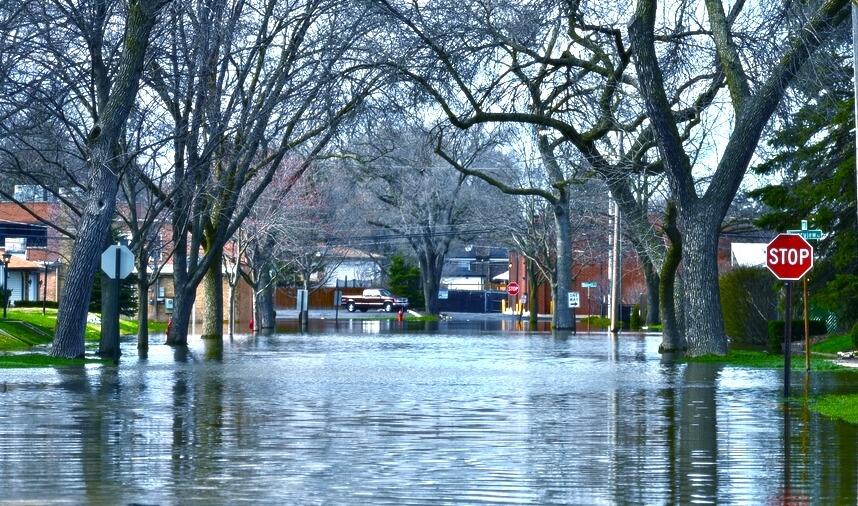 Dear policyholder,
Dear policyholder,
When dealing with an insurance claim it is common to receive official letters of communication from your insurance company. That communication from insurance companies is regulated by state laws, so these letters can vary between states. Three of the most common letters you might receive during the insurance claim process pertain to a reservation of rights letter, a non-waiver agreement, and a denial of coverage letter. Below we’re explaining how reservation of rights, non-waivers, and denial letters work, along with what your options are after receiving them.
What is a Reservation of Rights Letter?
A reservation of rights letter is a document from your insurance company that explains various reasons why the insurer might not cover a certain claim.
When you purchase homeowners insurance, property insurance, or business owners insurance, you expect your insurance company to cover certain situations. You pay a premium to your insurance company. In exchange, the insurance company guarantees certain coverage for certain situations.
Today, a growing number of insurance companies will try to absolve themselves of that liability by sending you a “reservation of rights” letter, before further investigation, if they suspect some coverage my not apply. In many cases the insurer may first present a non-waiver agreement to be signed by the insured policyholder. If the policyholder doesn’t sign the non-waiver agreement it is often followed by a reservation of rights letter.
A reservation of rights letter essentially allows the insurance company to protect themselves if they decide not to cover their claim. The insurance company is sending a letter “reserving” its “rights” to deny your claim in certain situations.
Why do insurance companies do this? How is this legal?
Well, an insurance company that acknowledges coverage today must pay any eventual settlement or judgement in the future. If the insurance company admits or implies that a claim is covered, they can be estopped from denying coverage later.
In other words, if the insurance company sends a reservation of rights letter today, it can help them avoid making a huge payout in the future if they determine some or all coverage for the claim losses does not apply. If they don’t send a letter today, then they may be required to cover a wider range of situations.
Today, an insurance company might agree to investigate and cover your claim “subject to a reservation of rights.” The conditions for that reservation of rights are outlined in the reservation of rights letter from your insurance company. This may include things such as suspicion of fraud, negligence of the insured, failure to uphold duties of the policyholder, or any other reasons under the policy that the insurance company may deny coverage for some, or all, losses.
The insurance company might send a reservation of rights letter immediately after receiving your claim. Or, the insurance company’s adjuster may send a reservation of rights letter after visiting your property to inspect the claim if you won’t sign a non-waiver agreement.
What is a non-waiver agreement?
A non-waiver agreement is much like a reservation of rights letter, however it is meant to be signed by the policyholder to acknowledge that coverage may not apply due to certain circumstances. The non-waiver agreement is typically issued when the insurer suspects some or all coverage may not apply. The non-waiver agreement should detail the reasons in the policy that coverage may not apply. A policyholder is not required to sign a non-waiver agreement. Usually if a non-waiver is presented and a policyholder does not sign it, the insurance company will then issue a reservation of rights letter.
What’s Included on a Reservation of Rights Letter?
Generally, a reservation of rights letter will include various conditions that would cause your insurance company to deny or reduce your claim.
Typically, the reservation of rights letter consists of “legalese” similar to what you would find in an average terms and conditions document. A simple reservation of rights letter might look like this:
“Alpha Insurance Company will continue to handle your claim even though a coverage question exists. However, no act of any company representative while investigating or negotiating the settlement of this claim or defending a lawsuit shall be construed as waiving any of our rights. Alpha Insurance Company reserves the right, under the terms of your insurance policy, to deny coverage to you or anyone claiming coverage under the policy. There may be other reasons why coverage does not apply. Alpha Insurance Company does not waive its right to deny coverage for any other valid reason which may arise.”
Basically, the company is just reserving its right to deny your claim. That’s why it’s called a “reservation of rights” letter.
Don’t Panic When You Receive a Reservation of Rights Letter
Insurance companies might want you to panic when you receive a reservation of rights letter. They may want you to feel uncomfortable, or to make innocent policyholders feel like they’re committing fraud.
In reality, a reservation of rights letter may be one of the first standard letters sent from your insurance company after receiving notification of your claim. Some insurance companies send these letters for virtually every claim: it’s just part of their ordinary paperwork.
Reservation of rights letters can seem intimidating. They can make it seem like you’re committing insurance fraud or that your claim is under investigation.
However, it’s important to not panic when you receive a reservation of rights letter: it’s simply a document stating that the insurance company reserves the right to deny the claim if the damage does not qualify as a covered loss. It also gives the insurance company the right to investigate your claim without confirming that coverage will apply.
Why Would the Insurance Company Send a Reservation of Rights Letter?
Some insurance companies send a reservation of rights letter before processing virtually any claim. Generally, however, reservation of rights letters are exclusively sent after specific actions have taken place:
You Declined to Sign a Non-Waiver Agreement: If you decline to sign a non-waiver agreement, then your insurer may issue a reservation of rights letter.
You Failed to Report the Claim in a Timely Fashion: You didn’t report the claim as soon as possible, and now the insurance company is going to struggle to properly investigate the claim as a result of this delay.
You Failed to Perform your Policyholder Duties: You failed your policyholder duties in other ways and violated the terms of your policy.
Essentially, if you compromise the insurance company’s ability to properly investigate your claim, then the insurance company might send a reservation of rights letter to you.
Are Insurance Companies Legally Allowed to Send Reservation of Rights Letters?
At this point, you may be wondering: how can an insurance company send a reservation of rights letter? What’s the point of having property insurance or homeowners insurance if my insurance company “reserves its rights” to deny a claim?
These are all valid concerns. This is why reservation of rights letters are controversial. Some reservation of rights letter cases have gone before courts. In many cases, a court will side with the policyholder.
One landmark case involved Advantage Buildings & Exteriors, Inc. v. Mid-Continent Casualty Company. In that case, the insurer sent a reservation of rights letter outlining certain situations where they would not pay the company’s claim.
A court found that the insurer, Mid-Continent, had sent an insufficient reservation of rights letter.
In this case, the reservation of rights letter only vaguely explained the reasons why the insurance company would deny the claim. The case established that a “proper reservation of rights” letter provides the insured “with full knowledge of the position of the insurance company.” Since the letters sent by Mid-Continent did not meet this standard, Mid-Continent’s reservation of rights letter was seen as insufficient, and they were unable to deny coverage to the policyholder.
Calling Something a “Reservation of Rights Letter” Doesn’t Make It One
Simply calling a letter a “reservation of rights letter” does not make it one. The letter does not automatically and immediately reserve all rights of the insurance company.
The letter needs to abide by state laws, including laws pertaining to promptness, thoroughness, and clarity of the wording of the letter.
As demonstrated in the court case above, an insurance company does not immediately absolve itself of responsibility when it sends you a reservation of rights letter. That letter needs to meet certain requirements.
If you feel your insurance company sent a reservation of rights letter that did not adequately explain the situation, then you may want to talk to a public adjuster or attorney to ensure your claim proceeds smoothly.
What is a Denial of Coverage Letter?
 A denial of coverage letter is a separate thing from a reservation of rights letter. However, they’re often sent around the similar time and in similar situations.
A denial of coverage letter is a separate thing from a reservation of rights letter. However, they’re often sent around the similar time and in similar situations.
A denial letter from the insurance company is a letter informing the insured individual that their claim is being denied.
A letter of denial is often quite short. Some letters boil down to a simple statement like:
“You have no coverage for this loss.”
Sometimes, a reservation of rights letter is included with your denial of coverage letter. The insurance company might issue a denial of coverage letter, then add a reservation of rights letter to explain why and in which situations your coverage was denied.
Other Letters from your Insurance Company
Some of the letters an insurance company might send to a policyholder can include:
• Reservation of Rights Letter
• Denial or Partial Denial Letter
• Failed Attempt to Contact Letter
• Investigation Continuing Letter
• Settlement Letter
Reservation of Rights Letters Are An Ordinary Part of the Claims Process, But They Could Indicate Future Problems
Insurance companies send reservation of rights letters to limit their liability. The company is reserving its right to deny or partially deny your claim – say, if your claim is found to be fraudulent.
It’s important to carefully read and understand the details of any letter sent by your insurance company during the claim process. Don’t panic if you receive a reservation of rights letter. If your insurance company is honest, and if your claim is genuine, then your claim will likely proceed like normal.
However, if you believe your insurance company is acting in bad faith or failing to fulfill their duties under your insurance policy, then it’s a good idea to get in touch with an experienced public adjuster who can provide professional guidance for your specific claim situation.
Post Source Here: A Letter From The Insurance Company: Reservation of Rights, Denial of Coverage & Non-Waiver Agreements
 Dear policyholder,
Dear policyholder, A denial of coverage letter is a separate thing from a reservation of rights letter. However, they’re often sent around the similar time and in similar situations.
A denial of coverage letter is a separate thing from a reservation of rights letter. However, they’re often sent around the similar time and in similar situations.



